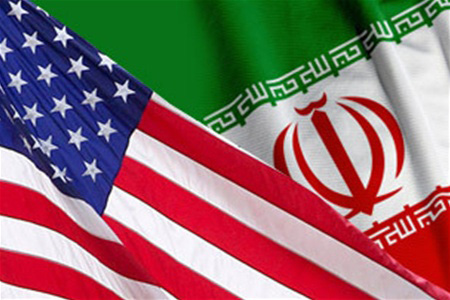Baku, Azerbaijan, Oct.3
By Azer Ahmadbayli – Trend:
If the evidence of Iran's direct complicity in the attack on Saudi oil facilities becomes unambiguous and convincing, the White House administration will have a unique opportunity to put together an international coalition and, without fear of being condemned by the international community, hit Iran’s certain targets, including nuclear facilities.
The establishment of a broad coalition, especially with the participation of the European allies, is crucial for President Trump, as in the run-up to the presidential election this will not give reason to his competitors to accuse him of outbreak of unwanted and costly (as they will argue) conflict.
However, things aren’t as clear-cut as they seem. Not having any doubts in incomparable military superiority of the United States over Iran, it should be borne in mind that the price of a military solution can be unreasonably high.
Apart from that, uncertainty over the election of a new coalition government in Israel prevents, for the time being, the White House from “synchronizing watches” with its main ally in the region.
But the main reason why the US administration prefers an economic solution to a military one is that Washington seems to have credible information that Iran's economy, as Mr. Trump has recently said, “is going to hell.”
Mostly due to the success in its course of economic pressure on Iran, the US did not retaliate for the summer acts of sabotage upon a number of oil tankers in the Gulf, and the downed US drone, and does not hit back after the latest attack.
Therefore, the first practical action Trump has taken after the attack on Saudi Arabia was the further increase in sanctions against Iran.
During his latest UN speech, the American president confirmed his adherence to this strategy saying that “as long as Iran’s menacing behavior continues, sanctions will not be lifted, they will be tightened.”
An economic rather than a military solution to Iran’s issue has been also reflected in a statement of the US Defense Secretary Mark Esper, who said that the US troops in the region will be “defensive in nature.”
Meanwhile, it cost Tehran several nervous days of uncertainty to see how the White House was about to respond. That was evident from the statements of Iranian officials, somewhat contradictory at times.
On the one hand, a chorus of military of various ranks was being heard from Tehran, promising the United States, Israel and Saudi Arabia terrible retribution for a possible attack on Iran. Along with that, other officials directly or indirectly disclaimed Iran’s participation in the attack on the Saudi oil infrastructure.
Iranian Foreign Minister Javad Zarif, for instance, began to explain how the Houthis managed to carry out the attack on Saudi Arabia. There was no any need for the explanation, but there was a palpable impression that he wanted to put Iran right before wide audience. In the same days, Iranian President Hassan Rouhani announced a new peace plan for the region, known as the “Hormuz Peace Initiative”.
Meanwhile, the leaders of Britain, France and Germany issued a joint statement accusing Iran of a direct involvement in the attack on Saudi Arabia. It is not clear what prompted them to make such a statement, while there is no hard evidence for this yet.
In this regard, another remark of the US President in his UN speech draws attention saying that the existing agreement (2015 nuclear accord) “has very little time remaining.” Does he know something that others don’t?
Forming a massive international coalition against Iran is currently a prioritized task for the White House.
Several days ago, Boris Johnson has sided with Donald Trump in calling the 2015 nuclear agreement with Iran a “bad deal”, British media say. His recent remarks marked a sharp change in UK rhetoric. British leaders, including Johnson, had until now upheld the 2015 accord as a major diplomatic achievement, the Guardian noticed.
Is this the first little crack in the EU’s unity on Iran’s nuclear deal, and isn't this what the US president meant?






